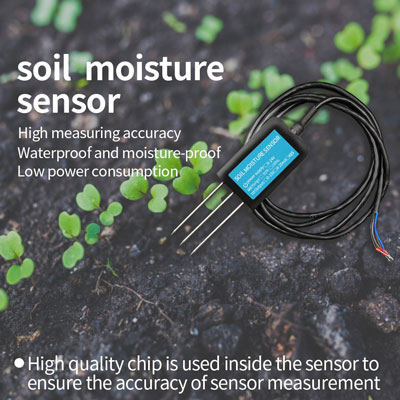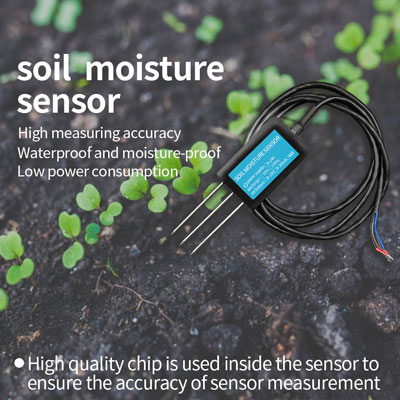The agriculture sector is critical for global food production and economic growth. However, it faces several challenges such as climate change, shortage of water and energy resources, soil depletion, and pest infestations.

One essential aspect for agricultural productivity is soil monitoring. It provides farmers critical data to improve crop yields, ensuring the efficient use of natural resources and environmental sustainability. Traditional soil measurement methods are time-consuming and labor-intensive, leading to inaccurate results. Moreover, they provide a fragmented view of the soil's health and productivity, limiting the decision-making process.
Fortunately, advances in sensing technologies have enabled farmers with real-time soil monitoring solutions that enable adapting strategies on the go to ensure better plant health and yield. Smart soil sensing solutions offer real-time assessment of various soil attributes, eliminating the time lag between testing and application of inputs.
Real-time soil monitoring allows farmers to precisely meet their crops' needs, preventing wastage of resources such as water, fertilizers and pesticides, improving crop quality and reducing damage from pests and disease.
Here are some examples of how smart sensing solutions are changing agriculture:
Soil Moisture Sensors
Natural resources like water are getting scarce, and water management has become a critical issue for farmers. In dry regions, farmers face high plant stress, affecting crop yield and quality. With soil moisture sensors placed at different depths of the soil, farmers can track the actual amount of moisture content in their fields over time. This data empowers farmers to optimize irrigation efficiency, making sure they only apply the correct amount of water needed, reducing water usage, and lower production costs. When coupled with weather forecasting data, these devices help farmers schedule irrigation times and minimize water loss due to evaporation or runoff.
Soil Nutrient Sensors
Soil nutrient levels play a significant role in crop yield, quality, and overall plant health. The soil nutrient sensor technology offers real-time and drone-based nutrient monitoring solutions that give immediate data, allowing farmers to precisely apply relevant corrective actions. With the use of these devices, farmers can identify which nutrients are low and adjust their fertilizer application accordingly.
Soil pH Sensors
Soil pH is a critical factor in determining its productivity and suitability for particular crops. By using soil pH sensors, farmers can monitor and maintain the optimal pH level required for maximum crop growth and health. This also contributes to promoting healthy soil microbial activity and increased root uptake of essential minerals.
Wireless Sensor Networks (WSN)
Wireless Sensor Networks are ideal for large farms as they allow for remote monitoring of multiple environmental variables simultaneously, such as air temperature, relative humidity and soil moisture, among others. These sensors networks work through IoT platforms where data is collected and analysed in real-time, empowering smart decision-making. Additionally, these WSNs are cost-effective, scalable, and able to sustain battery power for long periods, making them perfect for remote, wide-area applications.
Remote Sensing with Drones
Drones offer farmers a high-resolution bird's view of their farm, capturing detailed aerial images of the farmland, providing valuable insights on irrigation systems, vegetation, plant health, soil profiles, and weather conditions within and around the farmland.
In conclusion, agriculture has come a long way due to the advances in sensing technologies. Smart sensing solutions provide farmers with precise insights into their crops' health and soil attributes, enabling them to make informed decisions. With simple, cost-effective, and automated solutions like soil moisture, soil nutrient, and soil pH sensors, wireless sensor networks, and drone-based remote sensing, farmers can achieve sustainable and efficient farming practices, ensuring quality crop yields while preserving the environment and reducing overheads.






